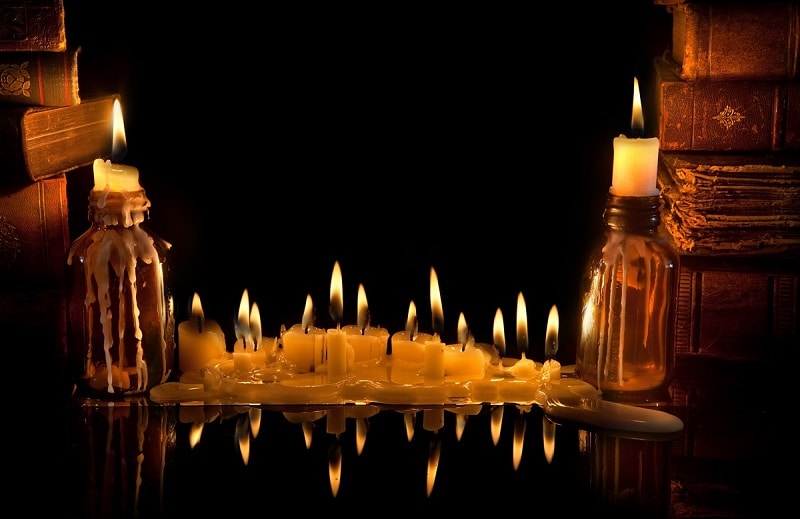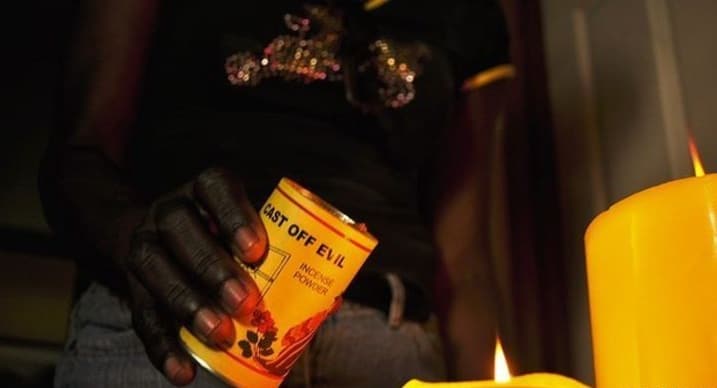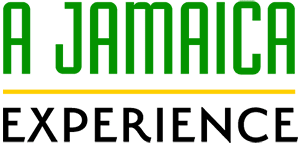The History of Jamaican Obeah and Practiced Rituals is against the law in Jamaica. However, there are still hundreds if not thousands of Obeah practitioners, all across the island nation. Obeah refers to a set of spiritual beliefs and practices originating in Western Africa. Many African slaves in Jamaica (called Obeah-men) practiced Obeah under British colonial rule.
This article will explore the history of Jamaican Obeah modern-day. We will discuss how Jamaicans feel about this important part of their island’s heritage.
Where Did Obeah Originate?

Image Source: DepositPhotos
Most historians believe the practice of Obeah started in West Africa. The exact location of Obeah’s origin is still up for debate. A majority of scholars believe it originated with the Igbo tribe in Southern Nigeria. In the Igbo language, “Obeah” translates to “doctoring”. Some critics dismiss the Igbo origin of Obeah. The name “Obeah” is derived from ethnic groups like the Akan in Ghana or the Efik in Nigeria. “Obeah” in Akan refers to “witchcraft” and in Efik it roughly means “a bad omen”.
Whatever the case may be, it’s clear that many African slaves in the Caribbean continued to practice Obeah ceremonies in islands like Trinidad and Tobago, Barbados, and Jamaica. Although some African slaves appeared to adopt the Christian customs, there were many Africans who kept up the practice of Obeah far away from the eyes of their masters. Also, some Obeah-men used (or continue to use) Christian symbolism and mysticism to enhance their magical operations.
Obeah’s Connection to Slave Revolts and Poisons
In the 18th century, the term “Obeah” was first used in Western newspapers. More and more Europeans were becoming concerned about Obeah’s power on local slave populations after Tacky’s Slave Rebellion in 1760. British colonialists discovered that many of the Akan rebels who participated in this revolt consulted Obeah-men beforehand. As a result, British colonialists worked to ban Obeah in all of their Caribbean colonies.
Another reason Jamaican Obeah was banned had to do with the Obeah-men’s use of poisons. One of the things almost all Obeah-men are proficient in is the uses of different oils, herbs, and chemicals. Some of the substances Obeah practitioners gave to their clients were incredibly dangerous and caused the deaths of many people. It was for these two major reasons that colonialists formally banned Jamaican Obeah in 1760.
What Are the Obeah Spells?

Image Source: Picquery
It’s hard to discuss the exact spells used in Jamaican Obeah; there’s no set doctrine like in other mystical systems. We’re told, most Obeah-men like to work with talismans, oils, and incense to influence spirits on this physical plane. Ancestor worship also plays a major role in Jamaican Obeah.
A few common issues people come to Obeah-men with include legal disputes, break-ups, health problems, and money problems. Depending on the client’s personality and the nature of the problem, Obeah-men will prescribe different remedies. These could include rubbing certain oils on the skin, a massage, or calling ancestors with incantations. Obeah-men also like to create fetish objects much like in Haitian Voodoo. They use either their client’s or other people’s hair, clothing, or skin.
One interesting supernatural being Obeah-men often contend with in Jamaica is called Old Higue. This horrifying creature is said to shed its skin and poison newborn infants. Parents who are concerned about this monster affecting their child can contact an Obeah-man for protection. The main way Obeah-men try to get rid of Old Higue is to burn her skin and/or manipulate spirits on the astral plane to drive her away.
There are a few Obeah-men who work exclusively with white magic. But many also don’t mind using black magic if the client wants to harm another person. Also, some Obeah-men incorporate practices from other mystical teachings into their repertoire. This could include something from a similar spiritual tradition like Haitian Voodoo. However, it could also include methods from foreign traditions like the Jewish Kabbalah, Christian mysticism, and The Order of the Golden Dawn.
De Laurence’s Influence On Modern Jamaican Obeah
Interestingly, one of the key influences on modern Jamaican Obeah is an American occultist by the name of Lauron William de Laurence (1868-1936). De Laurence’s works are so feared in Jamaica that anyone found to be carrying one of De Laurence’s books can still get into some serious trouble with local authorities. During his lifetime, De Laurence wrote and published various books on occult topics such as Tarot cards, divination, and Kabbalah. One of the key texts for Obeah-men is called The Sixth and Seventh Books of Moses; it explains the secrets behind Moses’s magical abilities. De Laurence had a great impact not only on the modern development of Jamaican Obeah, but also on the African-American Christians in the Southern USA.
What Do Jamaicans Think Of Obeah Today?
Officially, about 60 percent of Jamaica’s current population identifies as Protestant. The second largest group (30 percent) identifies as non-religious. If you ask people in urban centers like Kingston what they think of Jamaican Obeah, they’ll probably just say it’s all superstition. Jamaicans living in more rural areas might be more inclined to tell you they believe in this ancient spiritual practice.
Even if people don’t admit to believing in Jamaican Obeah, they might be sneaking off to see an Obeah-man in private. It’s well known that Obeah-men stock up on magical goods like oils, soaps, and talismans at shops in Kingston. There’s obviously still a demand for Obeah practitioners in the Jamaican community. Both the poor and the ultra-rich have been known to consult men or women skilled in this ancient art.
Further Reading On Jamaican Obeah
Since Jamaican Obeah is generally passed down from teacher to student, it’s difficult for the uninitiated to get a full grasp of this old practice. Probably the best text to get a firm grasp of the complex history of Jamaican Obeah is Creole Religions of the Caribbean: An Introduction from Vodou and Santeria to Obeah and Espiritismo (Religion, Race, and Ethnicity) by Margarite Fernandez Olmos and Lizabeth Paravisini-Gebert. This scholarly text will give you a great sense of the amazing history of the religious practices throughout the Caribbean.
Many have tried to get rid of Jamaican Obeah practice. However, it still appears to be firmly established in the Jamaican community. Obeah is an important part of Jamaican heritage, and it’s probably not going away anytime soon.
